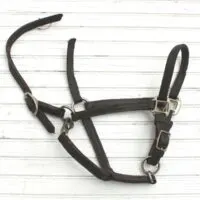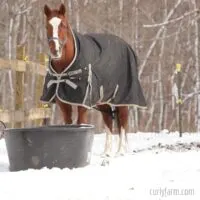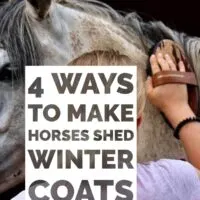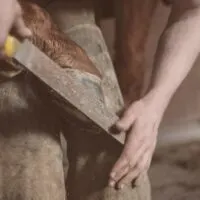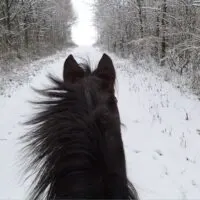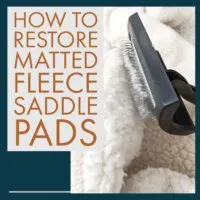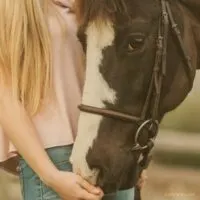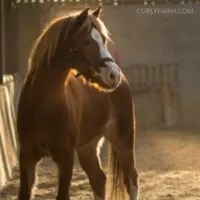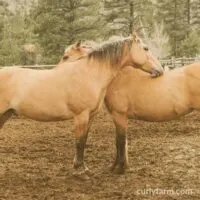Because I have horses in a suburban area, my horses wear leather halters 24/7. With this kind of with constant use, I end up with broken halter crowns regularly. I’ve learned to repair many issues with leather halters, including problems that most people think would send the halter straight to the trash! (By the way, …
Horsekeeping
At the end of a long winter, horse blankets can be so dirty that they look unsalvagable. In this Ultimate Guide to Cleaning Horse Blankets, I’ll show you how to wash horse blankets thoroughly- so you can totally clean and restore even the most soiled and weathered horse blankets- with less work and better results! …
Generally, horses shed their winter coats around the same time that temperatures start to warm and early spring plants begin growing. But horses might not always shed on time. In this article, we’ll talk about a few reasons that a horse’s coat might not be shedding on time or as quickly as other horses. …
Horseshoes are an important part of care for most (but not all!) horses. However, for many people new to horses, understanding horse shows and how they fit can be confusing. In this article, I’ll share what I learned through shadowing a farrier about measuring my horse’s hoof, choosing the right type of hoof care, and …
For many horse owners, winter is a tough time of year. With less daylight in freezing temperatures, It may be difficult to ride as much as we’d like. Although many riders avoid riding in snow, with the appropriate care taken to preparations the experience can be an exciting and memorable experience – that’s helpful for …
Nothing makes a horse and rider look smarter than a tidy, well-groomed turnout and a bright white fleece saddle pad under your saddle. Fleece saddle pads are popular, affordable, and in some competitive disciplines, are considered the “correct” tack for showing. The Problem: Clumped and Matted Fleece The problem with fleece saddle pads- both genuine …
Discover expert strategies for keeping horses cool and preventing overheating. With soaring temperatures reaching triple digits and little respite at night, it’s essential to follow special horse care routines during the heat of the summer. Get ready to conquer the heat and ensure your equine companions thrive in even the hottest summers! 🐴🌞💦 Basic Tips …
Detangling a tangled and matted horse mane and tail can be a frustrating and time-consuming process- too often resulting in excessive loss of hair and thinning of the tail in the process! Before you take the nuclear option and completely roach your horse’s mane, try this method for detangling. Below you will find illustrated instructions …
American horse owners generally avoid pasturing horses alone, but always stable horses one-per-stall. Why do we stall horses separately and is it possible that alternative stabling might be cheaper, easier, and healthier for many horses? Read on to learn more. Do Horses Need Their Own Separate Stalls? Short Answer: In traditionally built barns, Yes. Explaination: …
What you should do in the hours, days, and weeks after your trailer is stolen in order to increase the chances of recovery of the trailer and its contents and prosecution of the criminals involved. When you realize something has been stolen, it’s natural to panic. Brains flood with cortisol and it can be hard …

